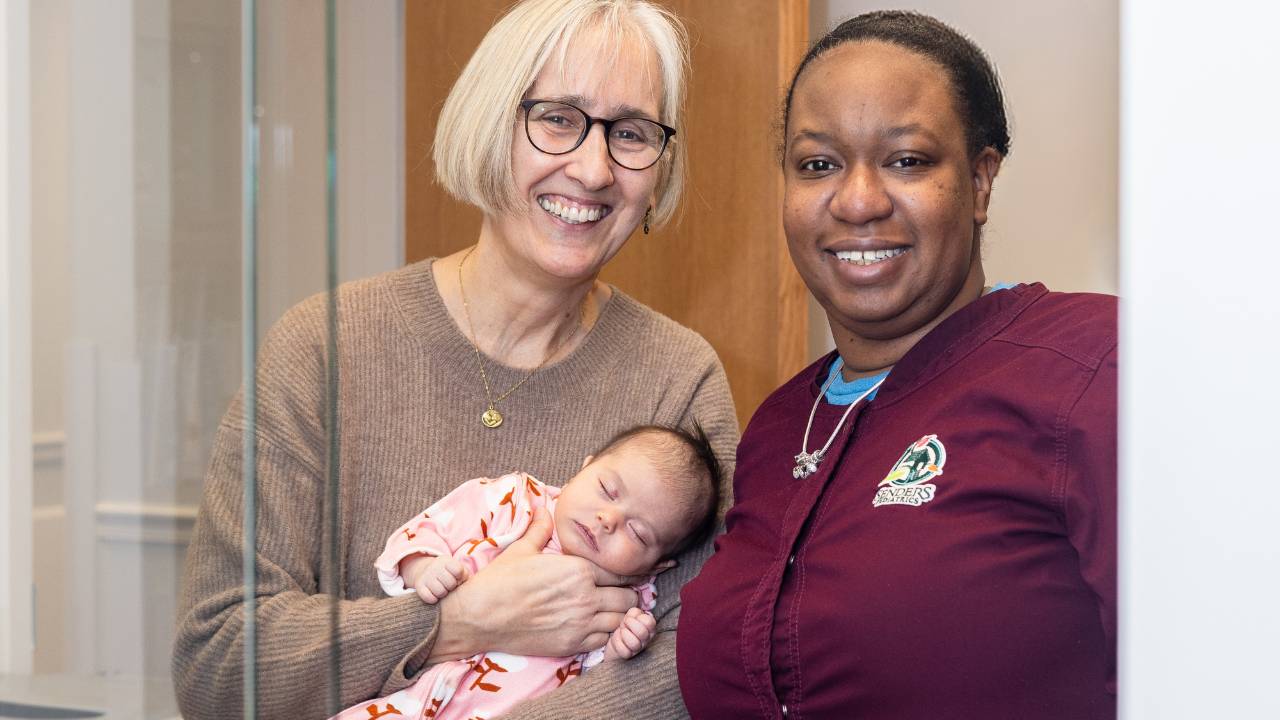Step up for Breastfeeding: Educate and Support
Aug 02, 2022
The theme for World Breastfeeding Week (WBW) for 2022 is "Step up for Breastfeeding: Educate and Support." This year’s theme refocuses on needed breastfeeding support. As primary care physicians, we are critical links in the warm chain campaign, an effort that seeks to coordinate across the health, community and workplace sectors to improve the mother and baby’s care during the first 1000 days. #WBW2022 focuses on strengthening the ability of participants in the warm chain to protect, promote, and support breastfeeding through education and support. WBW is a perfect time to refocus on the needs within primary care and our role within the warm chain.
Educate:
Studies clearly show that medical provider education improves breastfeeding outcomes. One study identified a greater improvement in breastfeeding rates amongst the patients of providers who participated more intensely in the education programs. Yet despite the benefits, medical trainees receive limited breastfeeding education. If you are looking to improve breastfeeding support at your practice, you might be wondering where to focus additional education.
Within the first 1000 days, a critical time for breastfeeding support is the early postpartum when families face lactation challenges such as pain and low milk supply which contribute to premature weaning. With this in mind, BFMED Primary Care chose to focus our initial course to provide education and practical knowledge helping PCPs support breastfeeding in the first weeks to help navigate these challenges: to help resolve pain, support milk supply, and troubleshoot engorgement.
Click here to learn more about our course: PCP Breastfeeding Support The First Weeks
Support:
Studies show that medical provider support of breastfeeding improves initiation and duration. When re-thinking how to strengthen the role of the PCP within the warm chain, there is an opportunity to re-examine collaboration with our lactation consultant colleagues and transform our existing practices.
Primary care lactation support can be adapted to your individual practice needs. In a smaller practice, the primary care provider (PCP) may provide the lactation counseling or the PCP may partner with a lactation consultant (LC) in the community. In a larger practice, the lactation consultant can be located at the office and collaborate to provide team-based LC/PCP support by routinely seeing every breastfeeding dyad at their first visit after hospital discharge in a shared visit with the PCP. In an obstetric practice, the LC can be available to team-up at prenatal visits and provide extra education beyond the time typically available in a prenatal visit. Integrating routine support into our daily practice helps strengthen the warm chain and our health care system support.
Interested in learning more about team-based LC/PCP care? Download our FREE handout!
Step by Step:
Both the Academy of Breastfeeding Medicine and the American Academy of Pediatrics have protocols to improve breastfeeding support in the office. Highlights of ABM Clinical Protocol #14: Breastfeeding-Friendly Physician’s Office- Optimizing Care for Infants and Children include:
- Promote breastfeeding in your office
- Normalize breastfeeding
- Prenatal: If providing prenatal care discuss infant feeding, identify lactation risk factors, and encourage prenatal breastfeeding education
- Immediate postpartum: Help parents initiate and continue breastfeeding
- Bridge postpartum care to the outpatient setting
- Educate families
- Educate health care providers
Perhaps taking a first step can be reading the protocol and identifying one area of change that can be implemented at your practice to help strengthen your role in the warm chain.
~Ann M. Witt, MD, FABM, IBCLC





